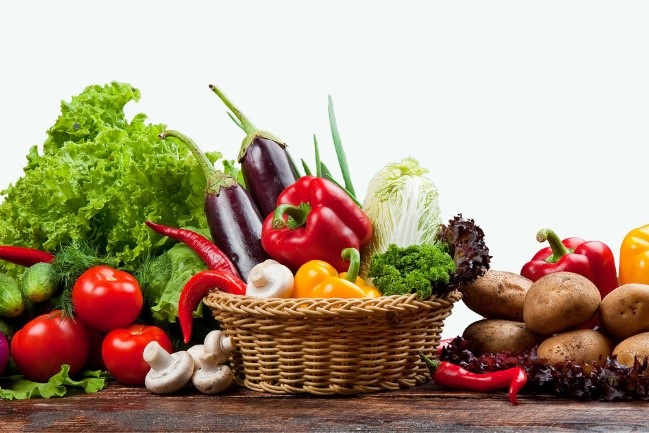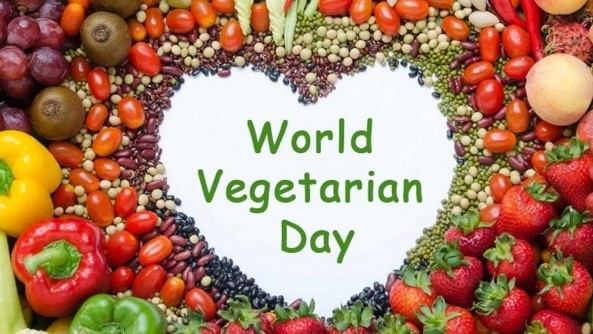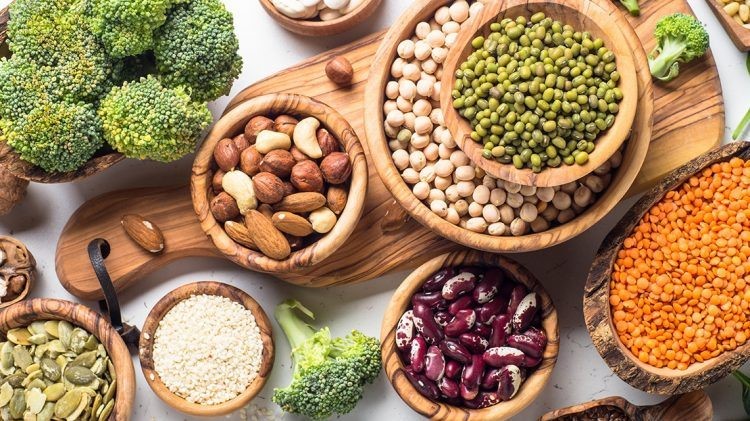Go for veggies on the World Vegetarian Day

The World Vegetarian Day is observed on October 1st each day as a Vegetarian Awareness month. It aims to make people aware of the environmental, health, and humanitarian benefits of adopting vegetarian food habits. Ever since the Covid 19 pandemic has engulfed the entire world, people have become more conscious about a healthy lifestyle. Researches and studies have concluded that choosing a plant-based diet is certainly helpful in battling certain diseases and illnesses. Having said that, the majority of the world’s population is still a carnivore, just 10% of the population is vegetarian.

The World Vegetarian Day was founded by the North American Vegetarian Society (NAVS) in 1977, which later was endorsed by the International Vegetarian Union in 1978. The month of October is regarded as the ‘Month of Vegetarian Food’. Food habits or diet is largely associated with cultural influence or belief systems as some people believe killing animals is not a good idea while others adopt a vegetarian diet for health reasons. Adopting a specific diet sometimes depends upon the climate as well, in some areas where the climate is not conducive to plants and vegetables, people bend towards a non-vegetarian diet. In India, the idea of vegetarianism is present for centuries and a large number of people still stick to it.
The vegetarian diet is of two types: Lacto-vegetarian, which includes plant-based food and dairy products, and Lacto-ovo vegetarians, which includes plant-based foods, dairy products, and eggs. There is a myth around the vegetarian diet that it does not provide enough protein to the body and the taste is usually bland which is completely baseless. There is a variety of protein-rich food items, such as lentils, soya, soya milk, tofu, cheese which can provide recommended daily amount of protein. For getting a richer taste, experimenting with the preparation of food items can yield good results.

Benefits of Vegetarian diet:
- A vegetarian diet prevents higher blood sugar levels as some grains like millets, barley, pearl millet, oats have a lower glycemic index.
- The vegetarian diet proved to be good health for the heart. Vegetables, whole grains, fruits protect your heart from bad cholesterol, leading to better heart health.
- Regular consumption of leafy vegetables and a variety of salads provide low-calories which help in controlling extra weight gain.
- The plant-based food items contain potassium, low amounts of fat, and sodium that helps maintaining blood pressure levels.
- Milk products like cheese, curd, milk and tofu, soya, nuts, and soybeans have a greater amount of calcium that strengthens your joints and prevent bones from getting fractured or weakening.
Though a vegetarian diet is unquestionably a healthy diet, one has to be aware of what kind of vegetarian foods they are consuming, such as fast-energy releasing or slow-energy releasing carbohydrates have different effects. Deep-fried or spicy foods need to be avoided to get beneficial results. It is always recommended that whichever diet plan you adopt, it is essential to avoid fast foods and stick to home-cooked foods. One advantage of home-cooked food is that you can add or avoid ingredients that you like or you don’t like.